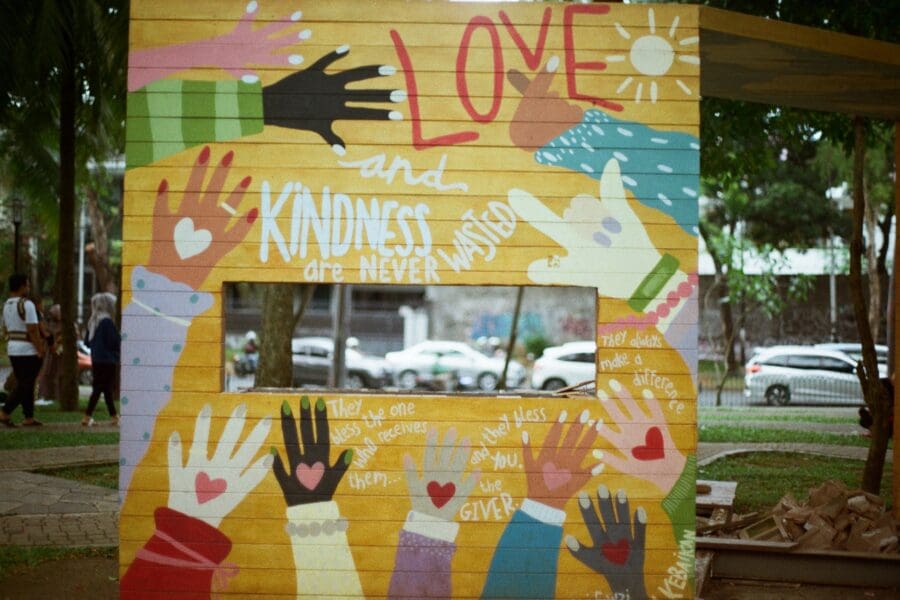Grief is skilled at finding the hidden corners of our lives where we never expect to meet it. For
those of us who discover our neurodivergence later in life, the grief can be as literal and intense as we are. Having the intensely painful realization that the identity you’ve been living—the one shaped by others’ expectations, societal norms, and what you thought you had to be—was carefully constructed for survival, is not for the weak. With the clarity of a late diagnosis comes a profound sense of loss—not for a false self, but for the energy and self-compassion sacrificed along the way. It’s the grief of losing hope that the “normal” self could ever fully actualize, and the complex emotions that come with finally finding context for feeling so profoundly othered when all you ever longed for was connection. The root of this grief is the expectations placed on us early in life, molding our identities in ways that often feel at odds with who we truly are.
The Weight of Assigned Identity
From an early age, we’re given roles to play and scripts to follow. As girls, we’re taught to be
quiet, agreeable, and accommodating. We’re praised for being “good,” for fitting in. But what
happens when those scripts don’t fit? When you’re different in ways that aren’t immediately
visible, yet make following the script feel impossible?
For many of us, neurodivergence is genetic. It often runs through families, weaving a complex
web of unspoken rules and roles. Sometimes, this means stepping into the caretaker role for
those who were openly allowed to be neurodivergent—parents, siblings, or relatives whose
struggles were seen and accommodated, while our own went unnoticed. There’s a unique grief in mourning that role, the sadness of realizing that your caretaking masked your own needs, and the frustration of never feeling permitted to be anything but strong.
For others, it’s the quiet heartache of knowing that even bringing up the genetic aspect of
neurodivergence feels like a taboo. The thought of openly discussing these shared traits feels
impossible, and you mourn not just the unspoken bond that could have existed, but the reality
that even acknowledging it might never be welcomed. It takes time to grieve the silence—the
realization that no matter how connected we are by blood, some conversations will always be
poor form or off-limits.
The Complexity of Ascribed Identity
Then there’s the identity that others project onto you—not built from who you are, but from who
others need you to be. When I learned I was neurodivergent, it felt like a curtain was pulled back on a stage I hadn’t fully realized I was performing on—yet had been, all along. Suddenly, so much of my past made sense: the exhaustion, the constant self-monitoring, the quiet resentment of having to be the one who kept it all together. Understanding that my struggles had a neurological reason was both liberating and heartbreaking.
It was liberating because I could get off the treadmill chasing a sense of normalcy that was never meant for me. But it was also heartbreaking, realizing how much of my life had been shaped by conforming to roles that never fit, roles that left no room for my own needs. I grieve the years spent holding everyone else together while feeling like I was unraveling, the unspoken truth that my caretaking masked my own need for care.
In the end, we all unravel when we can’t be.
I grieve that self-denial can’t be neutralized by good nature or good nurture.
Living Between the Pane of Glass
Living neurodivergent feels like existing in the space between a pane of glass. People see the
surface or what’s beyond, but rarely acknowledge the in-between where I felt trapped—never
fully visible, caught between expectations and my true self. It’s a lonely place, grieving not just
the identity you’ve lost but also the one that was never fully recognized.
Grieving the Self That Never Was
The grief that comes with this realization is layered. It’s not just about losing the identity you
thought was yours; it’s about never having had the chance to fully know yourself. I grieve the
energy spent masking, the relationships shaped by fulfilling others’ expectations rather than
genuine connection, and the time lost looking for answers that weren’t the answers at all.
There are places I can’t go and social situations I can’t endure without feeling drained, even
when those I love want me there. I grieve how my need for space is misunderstood, and sensory sensitivities dismissed as quirks. Most of all, I grieve the self-compassion that was absent because I didn’t know it was something I deserved.
The Duality of Grief and Discovery
But grief isn’t just about loss; it’s also about discovery. Realizing I’m neurodivergent wasn’t just
an “aha” moment—it was both relief and sorrow. Relief in understanding why I struggled, and
sorrow for how different things might have been if I had known sooner. This discovery
highlights what could have been, but it also brings the chance to finally live authentically.
Reclaiming Identity: Moving Forward with Authenticity
I’m learning to live in a way that aligns with my true self. I’ve embraced what brings me joy,
even if it seems odd to others, and I’ve stopped apologizing for needing time alone. I’m shifting
toward a life where my neurodivergent traits are strengths, not burdens. The grief is still there—
for the time lost, the relationships that didn’t work, and the self that was never fully realized. But
alongside that grief is empowerment and a growing confidence in embracing who I am.
Final Thoughts: Embracing the Complexity of Grief and Identity
Grieving an identity you never fully chose is painful and liberating. It’s about letting go of roles
that were never yours and embracing the self you’re discovering. This grief isn’t just about loss;
it’s about what you’re on the verge of finding. If you’re navigating this kind of grief, know it’s
okay to mourn the self that never was and feel the weight of lost possibilities. But also know that within this grief lies discovery, empowerment, and the chance to finally step into your authentic self. Embrace the complexity of who you are—because within that complexity lies your strength, resilience, and highest self.
Go easy.








Leave a Comment